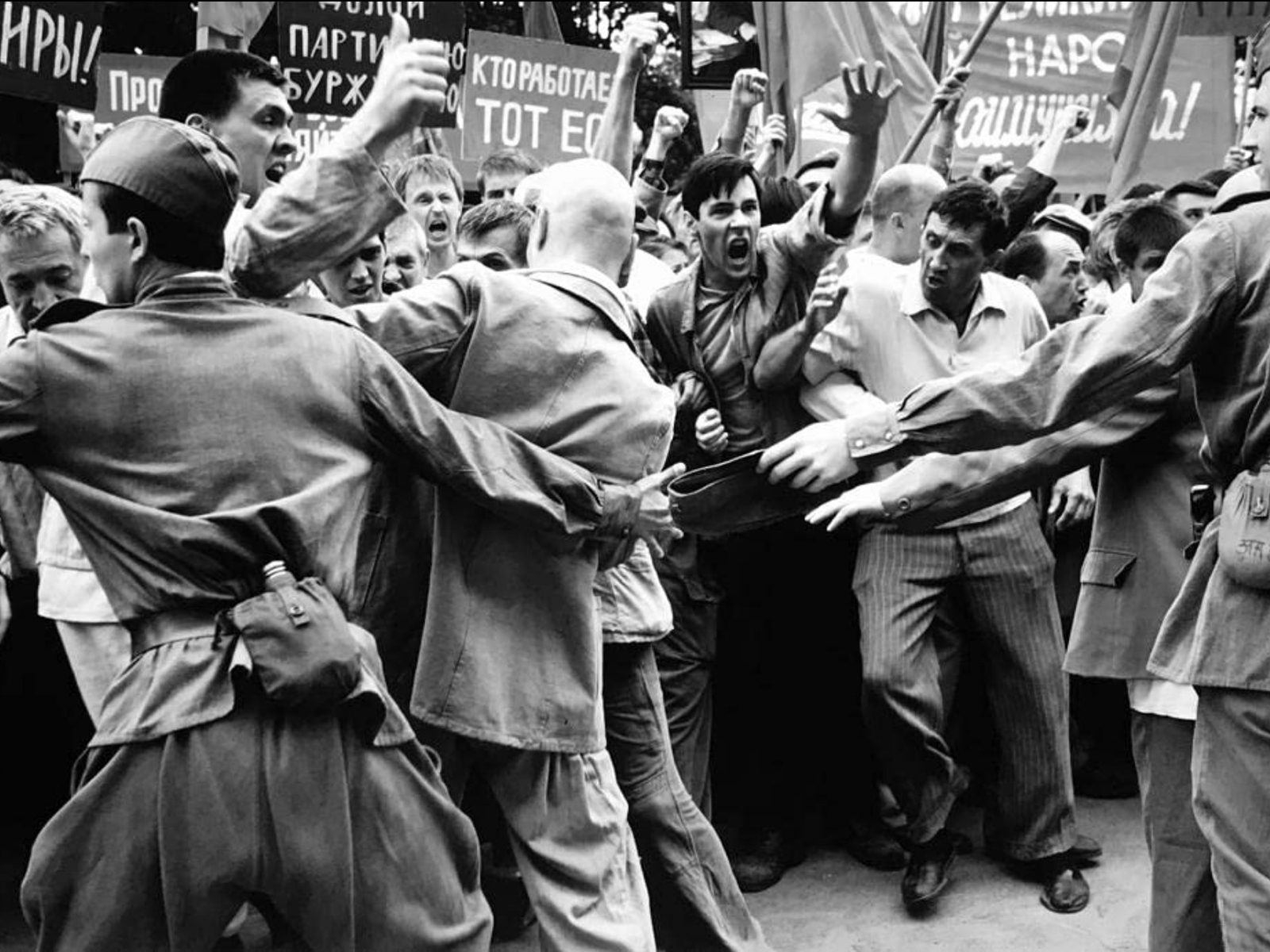
- Golden Globe Awards
Dear Comrades! (Russia): Interview with Andrey Konchalovsky
Dear Comrades! is based on a true story that took place in June of 1962 in Novocherkassk. The rebellious workers from the small industrial town of Novocherkassk went on strike after the communist government raised food prices. The massacre which ensues, and which was kept secret until the 1990s, is seen through the eyes of devout party activist Lyuda, played by Yulia Vysotskaya, who is herself a Novocherkassk native. We spoke to Konchalovsky, the director/screenwriter/producer of the film.
What were the biggest challenges that you faced making Dear Comrades?
The process of making the film about the 1960s was quite a unique experience. I tried to restore the historical authenticity of the era, which as you agree, is a fairly difficult task itself. I watched plenty of films where the 60s, 70s and 80s of the 20th century (and they) look fake and contrived. They bear no resemblance to the Soviet films made at the time, like The Great Cranes Are Flying or Ballad of a Soldier. So, my goal was to scrupulously reproduce the era of the USSR’s 1960s. I think that the Soviet people of post-war time, the ones who fought and won WWII, deserve to have a movie that pays tribute to their idealism and the tragic dissonance that followed the realization of (the) differences (between) the communist ideals and the reality around them. I was striving to get as close as possible to the image of the Soviet films of that era. So, in the very beginning it was decided to shoot in black and white, with 1:33 aspect ratio, which was common for films of the time.
Can you please talk about the casting process.
The main character is played by a professional actress Julia Vysotskaya. The search for talent was done by two casting teams with very different goals. The first team was auditioning unknown Russian theater actors. The second team took “a street casting approach” and for a few months was looking for the “right” kind of faces: untrained talent among the workers of the Novocherkassk Electromotive Plant and local residents of the Novocherkassk, Rostov, and Adygea areas.
The film is based on the true events with a presence of some historical personalities.
I insisted that the actors portraying the Party’s top brass had to have perfect facial likeness to their historical prototypes. The background actors also had their own, full-scale casting. As I am deeply influenced (by) such legendary European directors as Fellini and De Sica.
Speaking of De Sica, don’t you owe your first director’s job to him? I recall you telling a story, that in 1970 he asked you to film the Russian segment of the film Sunflower with Sophia Loren and Marcello Mastroianni because he had to go back to Monte Carlo trying to win back the money he lost in a Casino?
Yes, it’s true. I took this honorary assignment very seriously and worked very hard on it. I invited all of my friends and family to the premiere just to find out that Vittorio left only one of my scenes: red waving flag.

